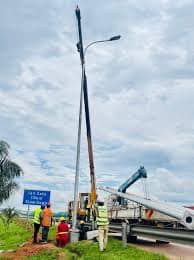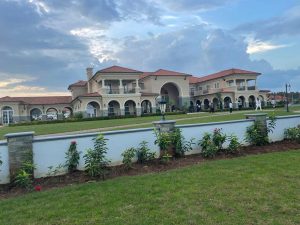
#OutToLunch: Investment ideas to fulfill your 2024 resolutions
By Denis Jjuuko This week sees the end of the festive holiday period almost for every organisation especially those in the private and development sectors. Like every new year, many people come up with resolutions, committing themselves to what they would like to achieve. For many, making more money tops the list. Money, makes the world go round or so we are told. If making money is one of your resolutions, here are some ideas: Trading in FMCGs: There is a saying that cashflow is king. If you want to make money in 2024, you may have to look at businesses with a lot of cashflow. Trading is one such business. You can buy stuff in the morning and have them sold by the evening. This is common in the sector known as fast moving consumer goods or FMCGs. Almost everybody or household uses them every single day. Such goods may include sugar, soap, cooking oil, wheat, bread, and packaged drinks (soda, water, beer, juices etc.). Fuel (petrol and diesel) are considered as FMCGs too. There are so many other goods in this category just like you see in the supermarket or retail shop near you. Because they are highly consumable, they provide good returns to those who trade in them. The margins per item is small but the secret here is in the volumes. Traders earn about Shs500 or so per a carton of soda or bottled water but the numbers they can sell a day can be huge. A small trader doing just 1,000 cartons a day would be able to earn a gross income of half a million shillings. In a six-day week, that would be Shs3m or approximately Shs12m a month. Treasury bonds and bills/unit trusts: There is an increasing interest in treasury bonds and bills as well as unit trusts. Unlike trading, these are hustle free investment options. You simply walk into your commercial bank with a minimum of Shs100,000 and start investing in bonds and bills. Insurance companies and investment companies regulated by the Uganda Capital Markets Authority offer unit trust investment opportunities some of as little as Shs10,000. Bonds, bills and unit trusts offer returns of about 10% annually. If passive income is your thing, this is where to invest. If you reinvest the interest, in a few years, you can significantly see huge returns due to the power of compound interest. Real estate: There are some people who are running away from real estate especially rentals to invest in the hustle free treasury bonds and bills and unit trusts, which means there is a gap that is increasing in real estate rentals especially for the lower and middle income categories. Already, statistics from Habitat for Humanity Uganda indicate that the country’s housing deficit stands at 2.4 million housing units. As Uganda continues to urbanize, there will be an increasing demand for houses for especially young people who are doing their first or second jobs. Houses that are affordable for the lower and middle income earners will continue to be in demand for years. The investment here is also not so high and can be done incrementally over a long period of time. Besides rentals for this population segment, land banking and selling and buying are still other income generation and saving options. Motor vehicle spare parts: If you live and work in the greater Kampala metropolitan area, you know the state of the roads in the country. Each vehicle you see on the road is a potential client. Given the state of the roads, car breakdowns are going to be the norm rather than the exception. The lack of an efficient public transport system and the culture of owning a motor vehicle considered as a yardstick of success will see an ever-increasing number of vehicles on the road. Most of these vehicles come in old from Japan and the state of the roads will ensure frequent breakdowns. Roads take time to be built even when money is available, making investing in motor vehicle spare parts a worthwhile venture. Electric mobility: A trending photo this week was of Tesla car being offloaded from a car carrier somewhere in Uganda. Teslas are fully electric vehicles. Many development partners and blue-chip companies have started electrifying their fleets. This is a result of URA removing import duty on electric and hybrid vehicles this financial year. Kiira Motors’s vehicle plant is nearing completion with the installation of the assembly lines, paint shops and testing facilities ongoing in Jinja. But we don’t have enough mechanics and technical people to maintain these electric vehicles. We don’t even have enough well-trained electric bus drivers. The electric mobility value chain has great potential for those looking for investment opportunities this year. Personal health: Apart from making money, many people resolve to do something about their health every new year. They perhaps understand that you can only make money if you are alive and healthy. Personal health is already an industry worth of billions of dollars globally. As the country urbanizes and a few people get out of poverty, they will always be willing to spend on their personal health making it an area with potential returns for investors. The writer is a communication and visibility consultant. djjuuko@gmail.com


